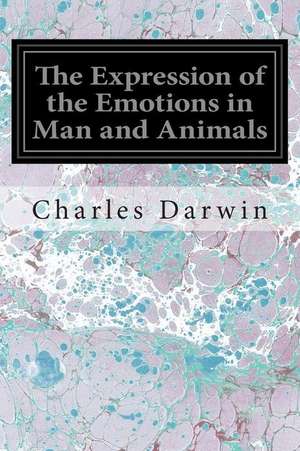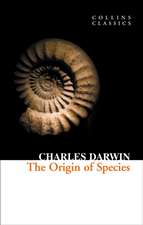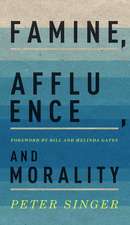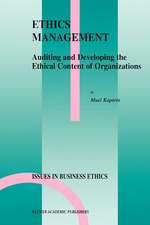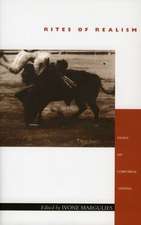The Expression of the Emotions in Man and Animals
Autor Charles Darwinen Limba Engleză Paperback
Preț: 52.46 lei
Nou
Puncte Express: 79
Preț estimativ în valută:
10.04€ • 10.51$ • 8.31£
10.04€ • 10.51$ • 8.31£
Carte disponibilă
Livrare economică 17-31 martie
Preluare comenzi: 021 569.72.76
Specificații
ISBN-13: 9781497359055
ISBN-10: 1497359058
Pagini: 126
Dimensiuni: 152 x 229 x 7 mm
Greutate: 0.18 kg
Editura: CreateSpace Independent Publishing Platform
ISBN-10: 1497359058
Pagini: 126
Dimensiuni: 152 x 229 x 7 mm
Greutate: 0.18 kg
Editura: CreateSpace Independent Publishing Platform
Notă biografică
Charles
Darwinwas
born
in
1809
to
an
upper-middle-class
medical
family.
He
was
destined
for
a
career
in
either
medicine
or
the
Anglican
Church
but
never
completed
his
medical
studies:
his
future
changed
entirely
in
1831
when
he
joined
HMSBeagleas
a
naturalist.
On
returning
to
England
in
1836
he
began
to
write
up
his
theories
and
observations
which
culminated
in
a
series
of
books,
most
famouslyOn
the
Origin
of
Species
by
Means
of
Natural
Selectionin
1859.
He
died
in
1882
and
was
buried
in
Westminster
Abbey.
Joe Cainis Senior Lecturer in History and Philosophy of Biology at University College London (UCL). His expertise is in the history of evolutionary studies in the nineteenth and twentieth centuries, Darwin and historical memory.
Joe Cainis Senior Lecturer in History and Philosophy of Biology at University College London (UCL). His expertise is in the history of evolutionary studies in the nineteenth and twentieth centuries, Darwin and historical memory.
Cuprins
Preface by Konrad Lorenz
Introduction
1. General Principles of Expression
2. General Principles of Expression (continued)
3. General Principles of Expression (concluded)
4. Means of Expression in Animals
5. Special Expressions of Animals
6. Special Expressions of Man: Suffering and Weeping
7. Low Spirits, Anxiety, Grief, Dejection, Despair
8. Joy, High Spirits, Love, Tender Feelings, Devotion
9. Reflection, Meditation, Ill-Temper, Sulkiness, Determination
10. Hatred and Anger
11. Disdain, Contempt, Disgust, Guilt, Pride, Helplessness, Patience, Affirmation and Negation
12. Surprise, Astonishment, Fear, Horror
13. Self-Attention, Shame, Shyness, Modesty: Blushing
14. Concluding Remarks and Summary
Introduction
1. General Principles of Expression
2. General Principles of Expression (continued)
3. General Principles of Expression (concluded)
4. Means of Expression in Animals
5. Special Expressions of Animals
6. Special Expressions of Man: Suffering and Weeping
7. Low Spirits, Anxiety, Grief, Dejection, Despair
8. Joy, High Spirits, Love, Tender Feelings, Devotion
9. Reflection, Meditation, Ill-Temper, Sulkiness, Determination
10. Hatred and Anger
11. Disdain, Contempt, Disgust, Guilt, Pride, Helplessness, Patience, Affirmation and Negation
12. Surprise, Astonishment, Fear, Horror
13. Self-Attention, Shame, Shyness, Modesty: Blushing
14. Concluding Remarks and Summary
Descriere
Descriere de la o altă ediție sau format:
To mark the birthday of the world's most renowned evolutionary biologist, Oxford University Press has reissued the definitive edition of Darwin's classic-a brilliantly entertaining and accessible exploration of human and animal behavior. Renowned psychologist Paul Ekman's edited version of this book is the first to appear the way Darwin ultimately intended, with all of the corrections and additions that were in Darwin's notes for a revision that was never published during hislifetime. "Why do we shrug? Why do dogs wag their tails? Why do we scowl when angry and pout when sad rather than the other way around? What is the difference between guilt and shame? This would be an extraordinary book even if it had only answered these and scores of similar questions about the emotions in 1872 . . . Darwin enriched his arguments with hundreds of insightful observations, many with the pathos and humor of great literature, as when he describes the terror of a man being led to hisexecution or the comical dejection of his dog as soon as it sensed that a walk might end . . . This edition has the feel not of a lovingly restored museum piece but of a recent seminal work."--Steven Pinker, Science "Darwin's most readable and human book . . . undiminished and intensely relevant even 125 years after publication."--Oliver Sacks, author of Musicophilia and The Man Who Mistook His Wife for a Hat "The Expression of the Emotions predates Freud, and it will still be illuminating human psychology long after Freud's discrediting is complete."--Richard Dawkins, author of The God Delusion "Highly original . . . this is scholarship at its best."--Simon Baron-Cohen, Nature "Ekman's edition is no mere reprint plus introduction."--Mark Ridley, Scientific American
To mark the birthday of the world's most renowned evolutionary biologist, Oxford University Press has reissued the definitive edition of Darwin's classic-a brilliantly entertaining and accessible exploration of human and animal behavior. Renowned psychologist Paul Ekman's edited version of this book is the first to appear the way Darwin ultimately intended, with all of the corrections and additions that were in Darwin's notes for a revision that was never published during hislifetime. "Why do we shrug? Why do dogs wag their tails? Why do we scowl when angry and pout when sad rather than the other way around? What is the difference between guilt and shame? This would be an extraordinary book even if it had only answered these and scores of similar questions about the emotions in 1872 . . . Darwin enriched his arguments with hundreds of insightful observations, many with the pathos and humor of great literature, as when he describes the terror of a man being led to hisexecution or the comical dejection of his dog as soon as it sensed that a walk might end . . . This edition has the feel not of a lovingly restored museum piece but of a recent seminal work."--Steven Pinker, Science "Darwin's most readable and human book . . . undiminished and intensely relevant even 125 years after publication."--Oliver Sacks, author of Musicophilia and The Man Who Mistook His Wife for a Hat "The Expression of the Emotions predates Freud, and it will still be illuminating human psychology long after Freud's discrediting is complete."--Richard Dawkins, author of The God Delusion "Highly original . . . this is scholarship at its best."--Simon Baron-Cohen, Nature "Ekman's edition is no mere reprint plus introduction."--Mark Ridley, Scientific American
Recenzii
"The Expression of the Emotions predates Freud, and it will still be illuminating human psychology long after Freud's discrediting is complete."
--Richard Dawkins
"Highly original . . . this is scholarship at its best."
-Simon Baron-Cohen, Nature
"Ekman's edition is no mere reprint plus introduction."
-Mark Ridley, Scientific American
"Why do we shrug? Why do dogs wag their tails? Why do we scowl when angry and pout when sad rather than the other way around? What is the difference between guilt and shame? This would be an extraordinary book even if it had only answered these and scores of similar questions about the emotions in 1872. But Expression also proved that the human mind, not just the body, is a product of evolution. It showed, during the heyday of scientific racism, that the races of mankind arefundamentally similar; anticipating virtually every twentieth-century behavioral science . . . Darwin enriched his arguments with hundreds of insightful observations, many with the pathos and humor of great literature, as when he describes the terror of a man being led to his execution or the comicaldejection of his dog as soon as it sensed that a walk might end . . . This edition has the feel not of a lovingly restored museum piece but of a recent seminal work."
-Steven Pinker, Science
Darwin's most readable and human book . . . It was never republished in his lifetime, even though Darwin made many additions and revisions in the text. Only now have all of Darwin's changes been incorporated into the book, along with a full apparatus of notes and appendices and a number of photographs that never made it into the 1873 edition . . . This new comprehensive edition of Expression will introduce a new generation of readers to Darwin's masterpiece, undiminished andintensely relevant even 125 years after publication.
-Oliver Sacks
--Richard Dawkins
"Highly original . . . this is scholarship at its best."
-Simon Baron-Cohen, Nature
"Ekman's edition is no mere reprint plus introduction."
-Mark Ridley, Scientific American
"Why do we shrug? Why do dogs wag their tails? Why do we scowl when angry and pout when sad rather than the other way around? What is the difference between guilt and shame? This would be an extraordinary book even if it had only answered these and scores of similar questions about the emotions in 1872. But Expression also proved that the human mind, not just the body, is a product of evolution. It showed, during the heyday of scientific racism, that the races of mankind arefundamentally similar; anticipating virtually every twentieth-century behavioral science . . . Darwin enriched his arguments with hundreds of insightful observations, many with the pathos and humor of great literature, as when he describes the terror of a man being led to his execution or the comicaldejection of his dog as soon as it sensed that a walk might end . . . This edition has the feel not of a lovingly restored museum piece but of a recent seminal work."
-Steven Pinker, Science
Darwin's most readable and human book . . . It was never republished in his lifetime, even though Darwin made many additions and revisions in the text. Only now have all of Darwin's changes been incorporated into the book, along with a full apparatus of notes and appendices and a number of photographs that never made it into the 1873 edition . . . This new comprehensive edition of Expression will introduce a new generation of readers to Darwin's masterpiece, undiminished andintensely relevant even 125 years after publication.
-Oliver Sacks
